Support strong Canadian climate journalism for 2025
Over the past year, 93 per cent of people living in countries where federal elections were held were targeted by online interference, according to a new report documenting the global rise of digital authoritarianism.
Social media is “now tilting dangerously toward illiberalism,” a U.S.-based organization, Freedom House, warns.
“Freedom on the Net” found the vast majority of the 3.8 billion internet users worldwide live in countries where governments are using sophisticated technologies to turn social media into a tool for manipulation and social control.
“The internet has given people access to information unimaginable in past generations. It has given marginalized communities the ability to communicate their positions and communicate with one another, across all sorts of borders,” David Kaye, the United Nations special rapporteur on the promotion and protection of the right to freedom of opinion and expression and a clinical professor of law at the University of California, Irvine, told National Observer. “But," he added, "it has indeed become a place of harm, to individuals, communities, (and) public institutions.”
The Freedom House report, which tracks developments in internet access, freedom of expression and privacy issues, found that internet freedom declined globally for the ninth year in a row, with online election interference and mass government surveillance affecting a majority of internet users in authoritarian regimes and democracies alike. Meanwhile, as disinformation and propaganda continue to pollute social media platforms and hijack political discourse, an increasing number of governments are exploiting the fight against “fake news” to enact laws that criminalize dissent and silence criticism, the report warns.
“While social media platforms have at times served as a level playing field for civic discussion, they are now tilting dangerously toward illiberalism, exposing citizens to an unprecedented crackdown on their fundamental freedoms,” the report says.
According to the group's findings, more than 70 per cent of the world’s internet users live in countries where people were arrested or imprisoned for posting political, social or religious speech online in the past year, and 65 per cent live in countries where individuals suffered physical violence or death in retribution for their online activities.
The Freedom House report is just the latest in a series of jarring reports highlighting how digital platforms are being used to undermine democracy and human rights around the world. In a separate report released this month, Chatham House warned “online political campaigning techniques are distorting our democratic political processes.” The report cited techniques including the spread of disinformation and divisive content on social media, exploitation of online algorithms, use of bots and fake accounts and use of psychological profiling to micro-target content based on personal data collected through social media.
To date, “such techniques have outpaced regulatory initiatives,” the report concluded, and thus far, “there is no international consensus on how they should be tackled.”
These conclusions mirror the findings outlined in a September 2019 report from the Computational Propaganda Project at the Oxford Internet Institute. Titled the “2019 Global Inventory of Organized Social Media Manipulation,” the report found “evidence of organized social media manipulation campaigns which have taken place in 70 countries, up from 48 countries in 2018 and 28 countries in 2017.” The report warned authoritarian regimes are increasingly using social media as a means of information control “to suppress fundamental human rights, discredit political opponents and drown out dissenting opinions.”
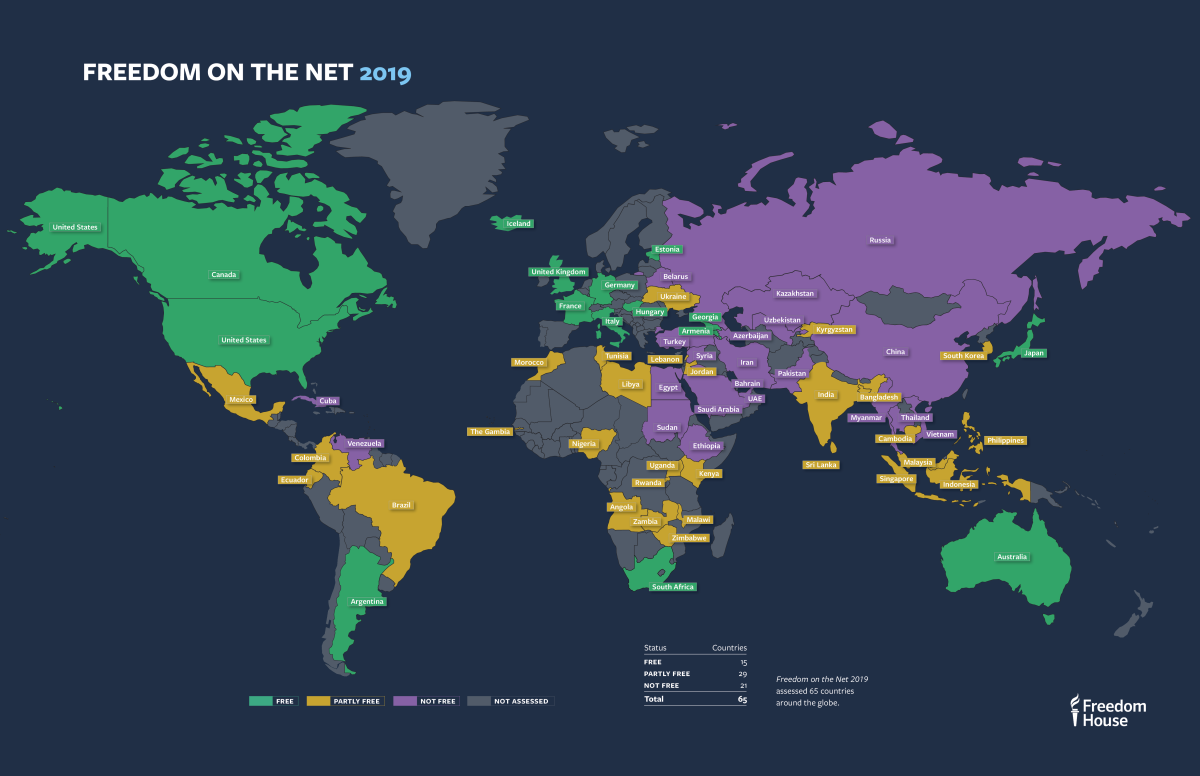
Of the 65 countries studied between June 2018 and May 2019, a record 47 countries were found to have arrested people for posting political, social or religious speech online, according to Freedom House. More than seven in 10 internet users worldwide live in one of those countries. In at least 31 countries, users suffered physical violence in retribution for their online activities. Forty countries featured advanced social media surveillance programs, and in a record 38 countries, political leaders used bots and fake accounts to covertly manipulate public opinion.
Overall, internet freedom declined in 33 of the 65 countries surveyed, while just 16 registered improvements. For the fourth consecutive year, China was the world’s worst abuser of internet freedom, while Iceland was rated its best protector. Canada ranked among the top five countries for internet freedom, with limited obstacles to access and very few limits on content or violations of user rights. Still, there exists a stark rural-urban divide in access to reliable and affordable internet services, especially in Canada’s northern territories, and concerns about mass surveillance are mounting.
Digital platforms are the ‘new battleground for democracy’
The findings come on the heels of Canada’s federal election and the related debate over how to best protect election integrity and defend against foreign interference in the democratic process. The federal government has acknowledged some attempts to interfere in the election were detected, but said those attempts did not meet the threshold for public reporting.
While the threat of foreign interference tends to dominate much of the conversation surrounding election integrity, the Freedom House report emphasizes domestic interference as a growing threat to elections and democratic processes more broadly.
Of the 30 countries that held national elections over the past year, 26 experienced domestic election interference, the report found. Based on population size, this means 93 per cent of people in countries where elections were held in the past year were targeted by election interference at the hands of their own governments or partisan actors working from within.
Much of this is taking place on social media, which the report refers to as the “new battleground for democracy.”
"Internet freedom is increasingly imperiled by the tools and tactics of digital authoritarianism," the report warns. "Repressive regimes, elected incumbents with authoritarian ambitions and unscrupulous partisan operatives have exploited the unregulated spaces of social media platforms, converting them into instruments of political distortion and societal control."

Misleading propaganda, memes, disinformation campaigns and online trolls and botnets were the most common methods of digital election interference, according to the report. In many instances, political leaders and candidates worked in tandem with public figures, partisan media personalities and “semi-autonomous online mobs” to push conspiracy theories, inflammatory rhetoric and smear campaigns from the fringes to the mainstream.
In Brazil, for example, authoritarian leader Jair Bolsonaro leveraged social media platforms like YouTube to amass a large following by promoting conspiracy theories that took advantage of the algorithm’s tendency to push viewers toward increasingly radical content. At the same time, political operatives used software to scrape phone numbers from social networks, then automatically added voters to a system of co-ordinated WhatsApp groups based on identifiers such as location, gender, age and income level. Once they were added to the groups, voters were inundated with up to 1,000 posts per day, ranging from misleading memes targeting Bolsonaro’s main opponent to disinformation and conspiracy theories aimed at mobilizing supporters to harass critics.
Siva Vaidhyanathan, a professor of Media Studies and director of the Center for Media and Citizenship at the University of Virginia, described these tactics as part of a three-pronged “playbook” used by repressive regimes and aspiring authoritarians around the world.
This playbook includes “pumping out propaganda to motivate supporters, pumping out propaganda to undermine the opposition, then harassing and terrorizing anyone who is seen as an opponent or critic,” including journalists, activists and human-rights leaders, Vaidhyanathan said.
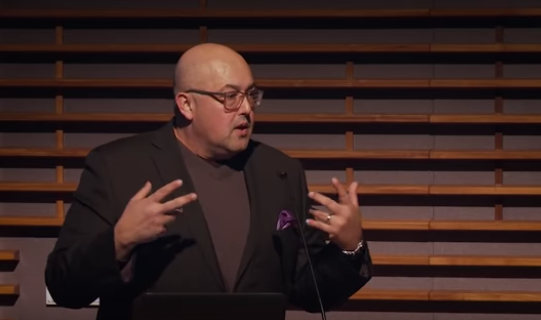
In many countries, the report notes, the use of these social media-based tactics has coincided with a rise in far-right extremism.
“This year, populists and far-right leaders have grown adept not only at creating viral disinformation, but also at harnessing networks that disseminate it,” the report notes. “Far-right groups may enjoy more success because — as studies have shown — false, shocking, negative, exaggerated and emotionally charged content tends to spread faster and wider on social media platforms than other types of content.”
This was true during Canada’s recent election campaign, according to a report by the Digital Democracy Project, which found voters who were identified as partisan tended to be drawn to headlines and stories that were negative in tone.
While acknowledging multiple social media platforms have played a role in these trends, Vaidhyanathan points to Facebook as a major culprit in the rise of digital authoritarianism, in part because of its sheer size but also because of the inherent design of the platform. He detailed many of the structural problems with Facebook in his 2018 book, Antisocial Media: How Facebook Disconnects Us And Undermines Democracy.
Facebook's algorithm "favours extremism" by "amplifying content that generates strong emotions," Vaidhyanathan explained, while the advertising model allows politicians and campaigns to micro-target vulnerable audiences with inflammatory advertisements aimed at manipulating voters rather than informing them. So-called "dark ads" — those visible only to the publisher and the target audience — exacerbate the problem further by removing content from public scrutiny, thereby making it impossible for candidates to respond to attack ads or for journalists to fact-check the claims. None of this, he said, is conducive to a healthy democracy or the deliberative debate it requires.
The platform’s design makes it the perfect tool for “stirring up resentment, stirring up divisions and motivating people through anger,” he said. “One by one, around the world, authoritarian leaders have been figuring this out.”
“If you wanted to invent a machine to promote authoritarian political takeover, you could not invent one better than Facebook,” Vaidhyanathan told National Observer.
Digital platforms provide ‘one-stop shop’ for surveillance, censorship
The basic model of social media, which relies on users to share information about themselves and others in their social networks, also allows these platforms to be used, and abused, as private surveillance machines, Vaidhyanathan noted.
The amount of data we produce on a daily basis is also so vast that it has become difficult to anticipate, detect and demonstrate the full scale of its impact. According to Google’s Eric Schmidt, we now create and store more data every 48 hours than we did from the beginning of human civilization to 2003.
Currently, nearly three billion people — 89 per cent of internet users — are under surveillance by advanced social media monitoring systems used by governments and law enforcement agencies, according to Freedom House. This number has grown rapidly in recent years, with many countries justifying these efforts “in the name of enhancing security, limiting disinformation and ensuring public order.”
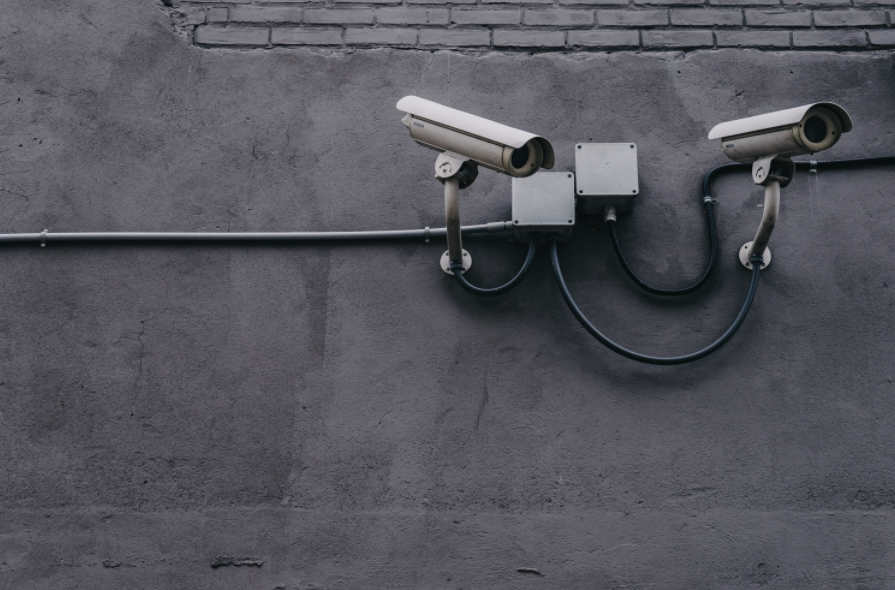
While sophisticated monitoring systems were once limited to major intelligence agencies, rapid advances in technologies such as artificial intelligence, 5G networks and advanced biometrics have created a thriving commercial market and lowered the cost of entry for dictatorships and democracies alike, allowing the tools of mass surveillance — and censorship — to be used in entirely new capabilities with little oversight or accountability.
For example, in March, The Tyee reported that the RCMP had been “quietly” monitoring individuals’ activity on Facebook, Twitter, Instagram and other social media platforms for at least two years. The program, called “Project Wide Awake,” uses a social media monitoring service from a U.S.-based company that supplies software to defence and intelligence agencies. Until its existence was uncovered, the surveillance program operated largely in the dark, with few controls and a troubling lack of oversight to protect individual rights.
Similar programs exist in the U.S., and new ones are being put in place with relative frequency. Last year, the Department of Homeland Security (DHS) established a new program to monitor what people are saying about the agency. As part of that project, the government maintains a list of journalists and influencers whose activities they track on social media and other digital platforms, raising concerns about self-censorship and targeted suppression of dissent. The DHS has also come under fire recently for using information obtained from social media posts to subject religious and ethnic minorities to enhanced vetting and surveillance in airports and other checkpoints.
The situation is even worse in countries controlled by more repressive governments. In China, for instance, authorities were recently found to be using a secret system of advanced facial-recognition technology to track and control the Uighur Muslim minority population, in what is described as “the first known example of a government intentionally using artificial intelligence for racial profiling.” The facial-recognition technology is built into the country’s vast network of surveillance cameras and used to track the activities and movements of people identified as Uighur.
Kaye, who is recognized as one of the leading voices on human rights in the digital age, said many of the problems outlined in the Freedom House report are the result of weak regulation and limited accountability surrounding the public-private collaboration in the expanding surveillance industry,
“Social media, smart devices and a concentrated telecommunications industry have transformed everyone into easily surveilled and easily censored,” Kaye told National Observer.
In today’s digital environment, “governments can conduct ‘one-stop shopping’ when it comes to monitoring critics and dissenters — that one stop being the major social media companies, which have centralized what previously was a decentralized internet,” Kaye said.
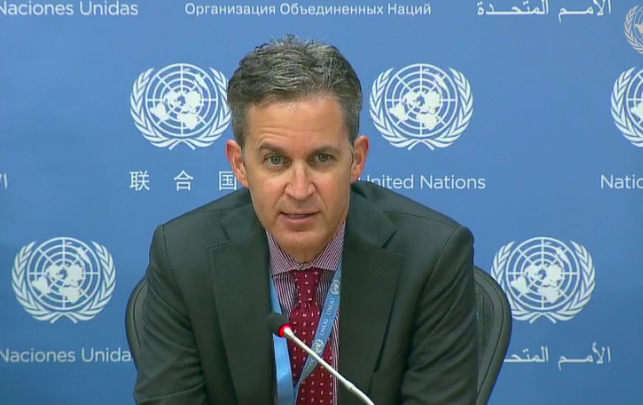
The consequences of such vast and advanced social media surveillance are already evident: out of the 65 countries in the report, Freedom House documented arrests for political, social or religious speech in a record 47 countries. One of the cases highlighted in the report took place in Vietnam, where a human-rights activist and environmentalist was sentenced to 20 years in prison after a one-day trial, in part because of Facebook posts critical of the government.
In some instances, individuals were punished not even for their own social media activity, but for the activity of their online contacts. In March 2019, for example, a member of China’s persecuted Uighur Muslim minority was reportedly detained and interrogated for three days because someone on his WeChat contact list had “checked in” from a location setting in Mecca, Saudi Arabia.
The report cautions that continued widespread monitoring of online activity “will lead to more arrests, particularly in environments that lack strong protections for free expression,” while monitoring of activists and protest movements will help further stifle democracy in authoritarian settings.
'There is no more time to waste'
Human-rights experts like Kaye say democratic countries have an imperative to take the lead in advocating for digital rights and protecting those living under repressive governments. The United States, particularly, bears a unique responsibility in this area, given that it is home to so many of the world’s largest social media and tech companies, including Facebook, Twitter and Google.
“(We) need governments and companies to put human rights at the centre of internet policy,” Kaye said. “Authoritarians will not do so, but democratic states should be calling out those that use the internet as a tool for censorship and repression. They themselves should reject surveillance except under the strictest legal controls.”
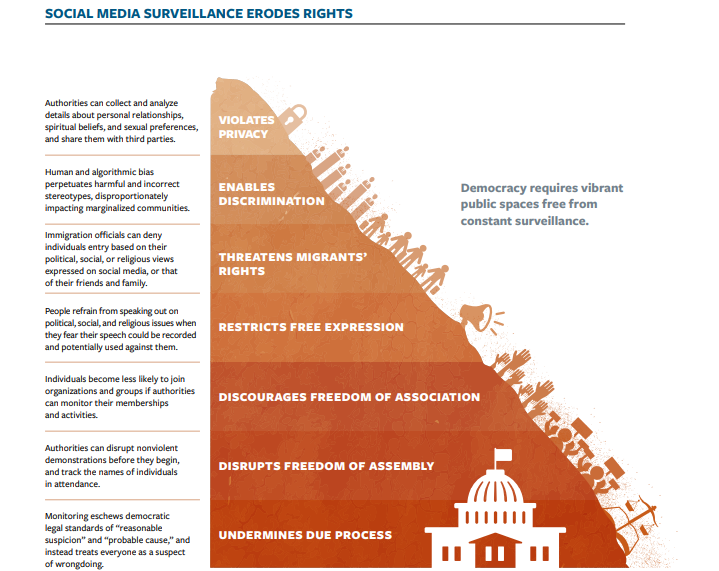
Kaye is also pushing for the United States and other democratic countries to take steps such as developing a “globally binding framework to control the spread of surveillance technologies,” with human rights at the forefront. Applying the specific language of international human-rights law to the digital domain could compel tech companies to work with countries around the world to uphold rights such as privacy and freedom of opinion and expression, even in places where protections for individual rights are lacking.
Through his work with the UN, Kaye has outlined how international human-rights law could be applied to issues such as hate speech, regulating the surveillance industry and protecting election integrity.
Kaye also wants to see the creation of new disclosure laws to compel tech companies to be more transparent about their policies, including how they respond to government demands for censorship and content restrictions. Many social media companies, especially Facebook, have been criticized for claiming to prioritize free speech while working with repressive regimes abroad to silence critics and remove or restrict access to certain content, often with little transparency about the process.
Moving forward, discussions about regulating social media must shift from a U.S.-centred perspective to one that considers the needs and vulnerabilities of the global community, Vaidhyanathan said. He pointed out that only 10 per cent of Facebook users and 15 to 20 per cent of Twitter users live in the U.S. or Canada, yet the debate over social media policies tends to be framed narrowly in the context of American politics, as seen recently in the response to Facebook CEO Mark Zuckerberg’s defence of his company’s controversial decision to let politicians lie in advertisements.
Both Vaidhyanathan and Kaye agreed on the need for a broader discussion of how to protect human rights and freedoms in an environment where the very structure of the internet is built upon the type of power imbalance that facilitates tyranny. With the tools of oppression becoming cheaper, more widely available and increasingly insidious, “there is no more time to waste,” Freedom House warns.
“Strong protections for democratic freedoms are necessary to ensure the internet does not become a Trojan horse for tyranny and oppression,” the report concludes. “The future of privacy, free expression and democratic governance rests on the decisions we make today.”

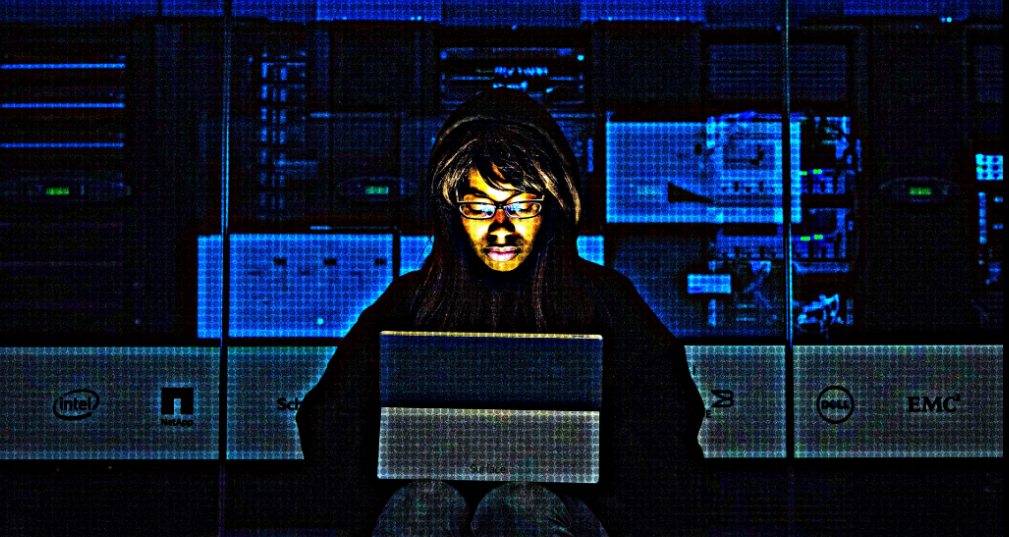






Comments